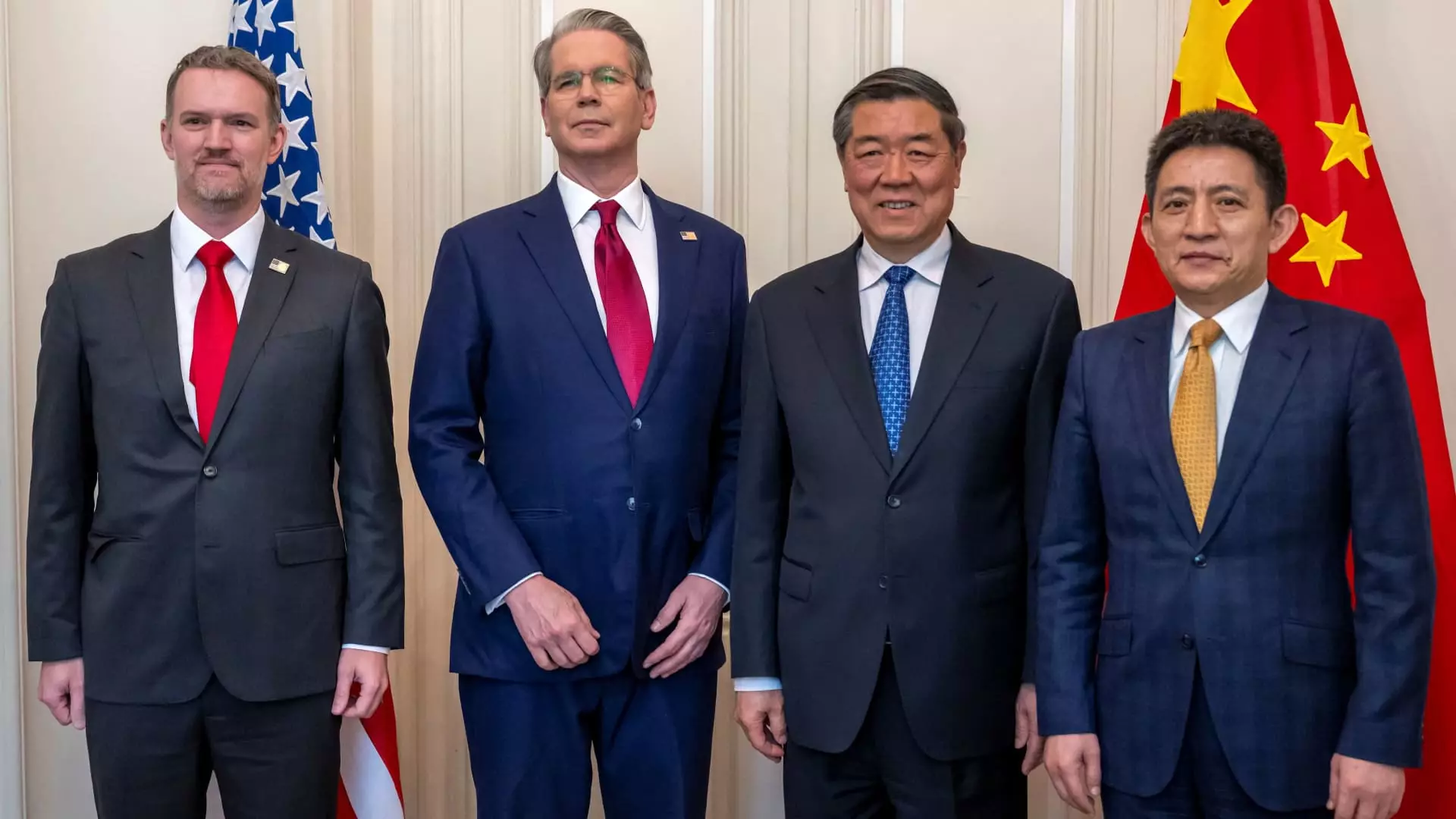In the grand theatre of international trade, the upcoming meeting between U.S. trade officials and their Chinese counterparts is akin to a high-stakes drama where the script seems predetermined. The dialogue, taking place in London, is ostensibly aimed at resolving a trade dispute that has spiraled into an existential struggle, characterized by reciprocal tariffs and rising tensions. Despite the promising initiative, many analysts remain skeptical about the potential for genuine progress, viewing the talks as merely a facade for more entrenched positions.
The U.S. delegation comprises senior figures including Treasury Secretary Scott Bessent, Commerce Secretary Howard Lutnick, and Trade Representative Jamieson Greer. On the opposite side, China’s Vice Premier He Lifeng leads the charge. However, the stark reality is that both parties may be more focused on posturing and demonstrating diplomatic efforts to their respective domestic audiences than on reaching substantive agreements. The prior discussions, including the Geneva accord, have revealed a haunting inconsistency where both sides accused each other of critical violations. Such behavior only underscores the fragility inherent in their negotiations.
The Shadow of Escalating Tensions
The specter of a full-blown trade war looms heavily over these discussions. President Trump’s initial imposition of sweeping tariffs jolted markets and elicited an aggressive response from China. Increasingly, the conflict appears to encompass not merely trade but the very fabric of national security and economic supremacy. Rebecca Harding, the chief executive of the Centre for Economic Security, aptly described the current scenario as an “existential battle.” The stakes feel higher than in past confrontations, as both nations grapple with competition for dominance in emerging technologies such as artificial intelligence and critical defense capabilities.
Yet, despite the complexity of these issues, the ongoing dialogue suggests a trivialization of serious economic and social repercussions. The underpinning economic philosophies of the U.S. and China clash fundamentally: one prioritizing open markets and democratic governance, while the other relies on state-directed capitalism and censorship. As such, any agreement generated from these talks is likely to be a mere patchwork, leaving the underlying tensions unresolved.
Short-Sighted Optimism in the Face of Reality
Interestingly, amidst this turbulent backdrop, some analysts cling to a threadbare optimism that progress is possible. Zhiwei Zhang, a prominent economist, struck a hopeful note, albeit cautiously. He noted that while immediate breakthroughs may not be forthcoming, some incremental improvements might surface—perhaps around issues like rare earth minerals. However, one cannot help but feel that this tokenism underplays the deeper systemic issues at play. The broader conflict is not simply about resource allocation but involves a race to define what economic power looks like in the digital age.
In reality, meaningful solutions to the trade discord require far more than mere dialogue. This situation has evoked a broader concern about the very nature of international relations, where economic competition has transmuted into a game of national survival. The dance between the U.S. and China transcends tariffs; it reflects opposing visions for the future of the global order.
The Digital Frontier: A Battle for Future Dominance
Central to this dramatic struggle is the digital frontier, where technology acts as both weapon and battleground. As nations race to harness the power of AI and digital infrastructure, the implications of these trade talks extend far beyond tariffs and duties. The discourse does not merely revolve around economics; it encompasses the principles of freedom, security, and control over information. As technology becomes increasingly intertwined with state power, how we approach trade will inevitably shape the very fabric of global society.
As the negotiations unfold in London, the world’s eyes should be focused not just on tariff reductions but on the broader implications for global governance and civil liberties. Engaging constructively in this complex landscape demands more than political finesse; it requires an acknowledgment of the deeper issues at play. The fate of these talks rests on whether the involved parties can rise above self-serving rhetoric and embrace a collective vision for a cooperative future. The time for such a union is fleeting, and with each passing day, the risks of descent into conflict escalate.


Leave a Reply